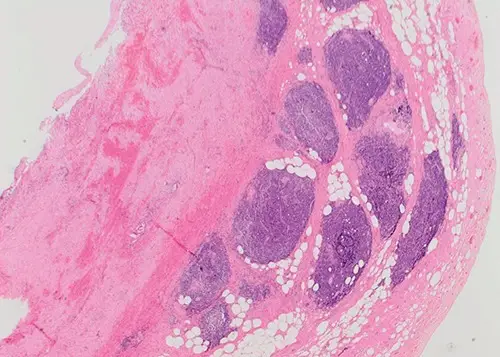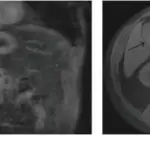Lymphoma of the gallbladder is a rare malignant neoplasm that can mimic carcinoma of the extrahepatic biliary tree.
What is the Pathology of Lymphoma of the Gallbladder?
The pathology of lymphoma of the gallbladder is:
-Etiology: The cause of lymphoma of the gallbladder are low-grade lymphomas of mucosa-associated lymphoid tissue (MALT) which have the propensity to spread.
-Pathogenesis: The sequence of events that lead to a lymphoma of the gallbladder is a diffuse, infiltrating, high-grade malignancy, arising from large B cells, with mainly immunoblastic characteristics.
-Morphology: The morphology associated with lymphoma of the gallbladder a high biliary stricture to involve the confluence of the hepatic ducts with dilatation of the biliary tree.
-Histology: The histology associated with lymphoma of the gallbladder shows sheets of basophilic cells of hematopoetic origin.
How does Lymphoma of the Gallbladder Present?
Patients with lymphoma of the gallbladder typically are female present at the age range of older years. The symptoms, features, and clinical findings associated with lymphoma of the gallbladder include the symptoms of gallstones, or other benign gallbladder diseases, abdominal colic, and dyspepsia.
How is Lymphoma of the Gallbladder Diagnosed?
Lymphoma of the gallbladder is diagnosed by US, CT and magnetic resonance imaging (MRI) scans, ERCP and PTC, laparoscopy, bone-marrow biopsy, gallbladder biopsy, and peripheral blood smear.
How is Lymphoma of the Gallbladder Treated?
Lymphoma of the gallbladder is treated with chemotherapy, with or without radiation therapy.
What is the Prognosis of Lymphoma of the Gallbladder?
The prognosis of lymphoma of the gallbladder is poor.



